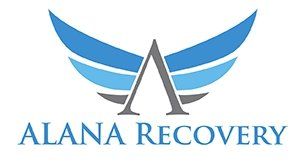Our
Services
Our Services
ALANA Recovery’s IOP Programs are designed to provide clients with the fundamental tools they will need to flourish in their recovery. Groups will focus on teaching relapse prevention strategies and coping skills that recovering people need to cultivate a sober, productive lifestyle.
Our Master level therapists assist each client in understanding the physical and psychological factors which contribute to their addiction and how to implement therapeutic techniques in their everyday lives. Goals for this level of treatment include fostering lifestyle changes that promote abstinence, improving coping skills and problem-solving strategies, engaging in community-based support systems (e.g., 12-Step fellowships, Celebrate Recovery, SMART Recovery, etc), assisting with transitional life skills (e.g.- housing, employment, adherence to probation requirements), and developing a strong, positive sober support network.
IOP Groups meet three times weekly and include a process group as well as a psycho-educational group. Clients may choose from evening or a day tract depending on which schedule is a better fit for their particular needs.
When you realize the negative effects addiction of any kind has on your life, you may seek treatment services for yourself or an addicted loved one. Consent is an important factor in seeking treatment for an addicted person. If you’re a concerned loved one seeking treatment for an addicted person, you cannot force them to undergo drug rehab or alcohol rehab.
If you’re addicted to a substance, you may decide to seek treatment after an intervention. These processes may involve your family and loved ones coming together to help you realize how your addiction has negatively affected them. It may come across as ganging up on you, but interventions come from a place of concern, and the people who organized the intervention usually present options for you to move forward.
Once you agree to take the steps to get better, there are several addiction recovery treatment services you may undergo. Regardless of the substance addiction you will recover from, addiction treatment services usually involve 12-step programs or other peer support groups to help you avoid drugs and alcohol.
Addiction Treatment Guidelines
- Adults ages 18 and up who need treatment for substance use disorder as diagnosed by the DSM-V.
- Those needing detoxification and/or medically supervised stabilization must complete such programs before entering one of our programs.
- Clients can no longer have symptoms of acute withdrawal from any substances and must be cleared by a qualified physician for admission.
- Clients must have the ability to perform a reasonable level of self-care including eating, grooming, and independent living.
- Clients must have a fundamental understanding of the English language
Frequently Asked Questions:
-
What is addiction?
Addiction is a chronic brain disease characterized by compulsive drug seeking and use, despite harmful consequences.
-
What is addiction recovery?
Addiction recovery is the process of overcoming an addiction and returning to a healthy, substance-free life.
-
What is substance abuse?
Substance abuse is the harmful use of psychoactive substances, including drugs and alcohol, leading to significant problems or distress.
-
What is substance dependence?
Substance dependence is a state in which an individual has an unhealthy relationship with a psychoactive substance, characterized by the inability to control their use and experiencing withdrawal symptoms when they stop using the substance.
-
PHP - Partial Hospitalization Program
Learn MoreThis level of care allows for clients to engage in a very intensive high level of care and services while not living at a residential facility. PHP typically involves a minimum of 20 plus hours a week of addiction services.
-
DIOP - Daily Intensive Outpatient Program
Learn MoreThis service is for clients who require longer treatment sessions, similar in intensity to partial hospitalization, before moving to 3 times a week IOP. This is usually structured as 5 days a week, for 3 hours per day, for approximately 10 days.
-
IOP - Intensive Outpatient Program.
Learn MoreGroups meet 3 times per week, either in the daytime or in the evening. Additionally, each client meets with their therapist at least twice a month individually. This level of care is ALANA’s primary focus. Our Master level therapists assist each client in understanding the physical and psychological factors which contribute to their addiction and how to implement therapeutic techniques in their everyday lives.
-
OP - Outpatient Program
Learn MoreAlana’s OP program is designed to support our clients through the transition after leaving IOP treatment. The goal of this program is to strengthen the client’s bond with their fellow peers through exercising compassion, connection, and community as well as to increase the longevity and quality of their new life in sobriety.
-
MAT - Medication-Assisted Treatment
Learn MoreMAT has become more and more prevalent with the exponential rise in opiate addictions. Medications are used in combination with clinical therapeutic interventions to provide a ‘whole-patient’ approach to the treatment of substance abuse disorders.
-
Alumni Program
Learn MoreOur aftercare and alumni program at Alana Recovery Centers is a support group open to all clients who finish the assigned levels of care successfully.
-
Drug Evaluations
Schedule an EvaluationA client facing legal charges may be required to undergo a Drug and Alcohol Evaluation and then follow the recommended level of care. ALANA partners with several providers to coordinate such evaluations and to provide the care prescribed.
-
PHP - Partial Hospitalization Program
Learn MoreThis level of care allows for clients to engage in a very intensive high level of care and services while not living at a residential facility. PHP typically involves a minimum of 20 plus hours a week of addiction services.
-
DIOP - Daily Intensive Outpatient Program
Learn MoreThis service is for clients who require longer treatment sessions, similar in intensity to partial hospitalization, before moving to 3 times a week IOP. This is usually structured as 5 days a week, for 3 hours per day, for approximately 10 days.
-
IOP - Intensive Outpatient Program.
Learn MoreGroups meet 3 times per week, either in the daytime or in the evening. Additionally, each client meets with their therapist at least twice a month individually. This level of care is ALANA’s primary focus. Our Master level therapists assist each client in understanding the physical and psychological factors which contribute to their addiction and how to implement therapeutic techniques in their everyday lives.
-
OP - Outpatient Program
Learn MoreAlana’s OP program is designed to support our clients through the transition after leaving IOP treatment. The goal of this program is to strengthen the client’s bond with their fellow peers through exercising compassion, connection, and community as well as to increase the longevity and quality of their new life in sobriety.
-
MAT - Medication-Assisted Treatment
Learn MoreMAT has become more and more prevalent with the exponential rise in opiate addictions. Medications are used in combination with clinical therapeutic interventions to provide a ‘whole-patient’ approach to the treatment of substance abuse disorders.
-
Alumni Program
Learn MoreOur aftercare and alumni program at Alana Recovery Centers is a support group open to all clients who finish the assigned levels of care successfully.
-
Drug Evaluations
Schedule an EvaluationA client facing legal charges may be required to undergo a Drug and Alcohol Evaluation and then follow the recommended level of care. ALANA partners with several providers to coordinate such evaluations and to provide the care prescribed.
Talk With a Provider Today!
Talk With a Provider Today!
Fighting addiction alone is an almost impossible task. Don't do this alone, call us today to start your road to recovery.









